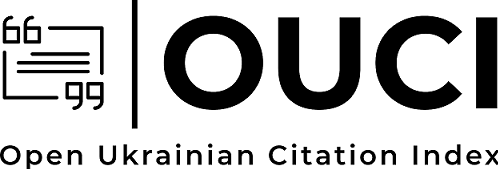Gender Aspects of the Professionalism of Female Teachers in Ukraine within the Context of Expanding Employment Rights at the Beginning of the 20th Century
DOI:
https://doi.org/10.28925/2524-0757.2024.22Keywords:
public education, women’s education, female teacher, professionalism, gender, public school directorAbstract
Motherhood for women remains a factor causing gender inequality in the labor market. This study examines the gender aspects of the professionalism of female teachers in Ukraine within the context of the expansion of their employment rights at the turn of the 19th to 20th century. The research employs a gender approach, methods of socio-cultural history, and elements of discourse analysis.
Employment of female teachers in primary schools was associated with an increase in female graduates with pedagogical qualifications from secondary education institutions. The gender-restrictive legislation of the Russian Empire led to labor market disparities between the demand for male labor and the supply of female labor. To address the shortage of subject-specific teachers in two-class urban schools, a temporary admission of female teachers was considered. Feedback from the directors of public schools supported this measure, highlighting the professionalism, diligence, and general cultural competencies of female teachers.
The study reveals that school authorities had gender-related concerns regarding the employment of female teachers. The preferred candidates were women over 25 years old with teaching experience and authority among male students. Marriage and motherhood were identified as gender markers of professionalism that shaped women’s attitudes toward their work. The professional reputation of these teachers was often influenced by their husband’s status, the success (or lack thereof) of their marriage and family life, and whether they had young children. The most in-demand type of female educator was the single, diligent, and unpretentious worker. Single women who were breadwinners with minor children constituted the most socially vulnerable category of teachers, often willing to accept any available teaching position.
Downloads
References
Andriichuk, N. M. (2011). Pidhotovka vchyteliv narodnoi shkoly v uchytelskykh seminariiakh Ukrainy (1860–1917 rr.). Zhytomyr: Vyd-vo ZhDU [in Ukrainian].
Drach, O. (2021). “Radical Reorganization…”: M. I. Pyrohov as Trustee (1858–1861) and Measures in Improving Professionalism of Teachers of Kyiv Educational District. Kyivski istorychni studii / Kyiv Historical Studies, 2(13), 6–14 [in Ukrainian]. https://doi.org/10.28925/2524-0757.2021.21
Drach, O. (2023). The Uniform of Women’s Gymnasium Employees in the Vision of the Heads of Institutions in Kyiv Educational District (late 19th — early 20th century). Kyivski istorychni studii / Kyiv Historical Studies, 2(17), 54–63 [in Ukrainian]. https://doi.org/10.28925/2524-0757.2023.27
Drach, O. (2024). Could the Marriage of a Female Educator Be Grounds for Dismissal? Opinions of Educational Institution Administrators at Kyiv Educational District in the Early 20th Century. Kyivski istorychni studii / Kyiv Historical Studies, 1(18), 6–19 [in Ukrainian]. https://doi.org/10.28925/2524-0757.2024.11
Drach, O. O. (2011). Vyshcha zhinocha osvita v Rosiiskii imperii druhoi polovyny 19 — pochatku 20 stolittia. Cherkasy: Vertykal [in Ukrainian].
Martin, D. ( 2024, September 17). Teachers to be allowed to work from home. The Telegraph [in English]. https://www.telegraph.co.uk/politics/2024/09/17/labour-plan-teachers-to-be-allowed-to-work-from-home/
Nahachevska, Z. (2014). Problemy ukrainskoi shkoly kintsia 19 — pochatku 20 st. u tvorchii spadshchyni zhinok-uchyteliv Skhidnoi Halychyny. In D. Hertsiuk, P. Sikorskyi (Ed.), Tovarystvo “Ridna shkola”: istoriia i suchasnist: nauk. alm., 7, 292–303 [in Ukrainian].
Rise of the SHEconomy (2019, 23 Sept.). Morgan Stanley: Research [in English]. https://www.morganstanley.com/ideas/womens-impact-on-the-economy#:~:text=Based%20on%20Census%20Bureau%20historical,up%20from%2041%25%20in%202018.&text=What’s%20driving%20this%20trend%3F,in%20their%2050s%20and%2060s
Rodevich, M. (Ed.). (1884). Sbornik deystvuyushchikh postanovleniy i prikazov po zhenskim gimnaziiam i progimnaziiam Ministerstva narodnogo obrazovaniia. Sankt-Peterburg: Tip. M. A. Khana [in Russian].
Savchenko, S. P., & Demus, Ya. V. (2023). Profesiinyi portret uchytelia pochatkovykh klasiv pochatku 20 stolittia [Professional Portrait of a Primary School Teacher of the Early XX Century]. Image of Modern Teachers, 1(196), 19–21 [in Ukrainian]. https://doi.org/10.33272/2522-9729-2021-1(196)-19-21
Shashkova, L. O., & Zlochevska, M. V. (2011). Dialohichnyi vymir humanitarnoho znannia. Kyiv: Vydavnychyi dim «Profesional» [in Ukrainian].
Varianytsa, A. O. (2017). Uchyteli narodnykh shkil Halychyny druhoi polovyny 19 — pochatku 20 stolittia. PhD dissertation, NAS I. Krypiakevych Institute of Ukrainian Studies [in Ukrainian].
Published
How to Cite
Issue
Section
License
Copyright (c) 2024 Оксана Драч

This work is licensed under a Creative Commons Attribution-NonCommercial-ShareAlike 4.0 International License.
Authors who publish in this journal retain the right of authorship of the work and give to the journal right of first publication of this work under the conditions of Creative Commons: Attribution-NonCommercial-ShareAlike 4.0 International (CC BY-NC-SA 4.0), which allows others freely distribute the work published with reference to the authors of the original work and the first publication of this magazine.














